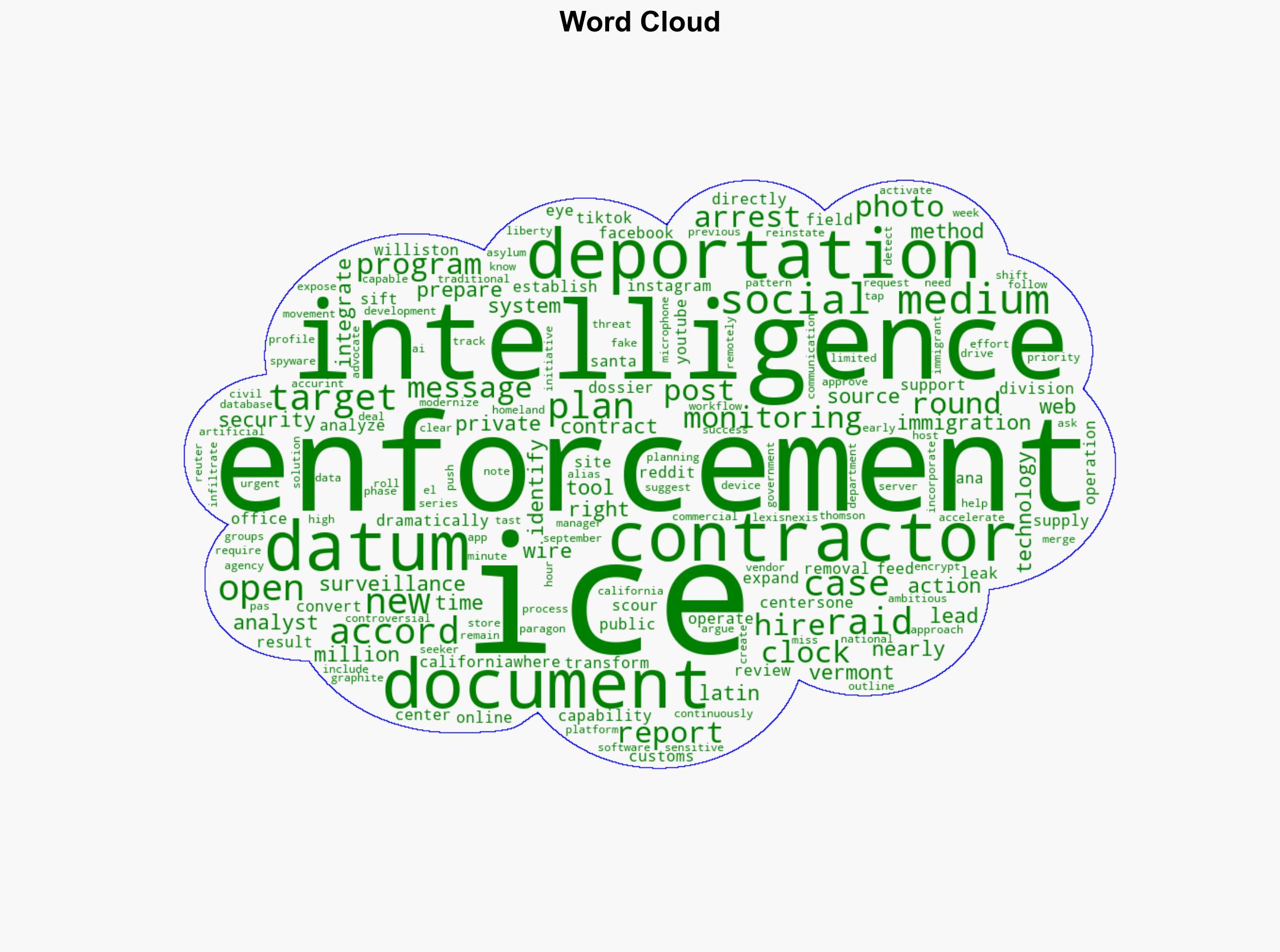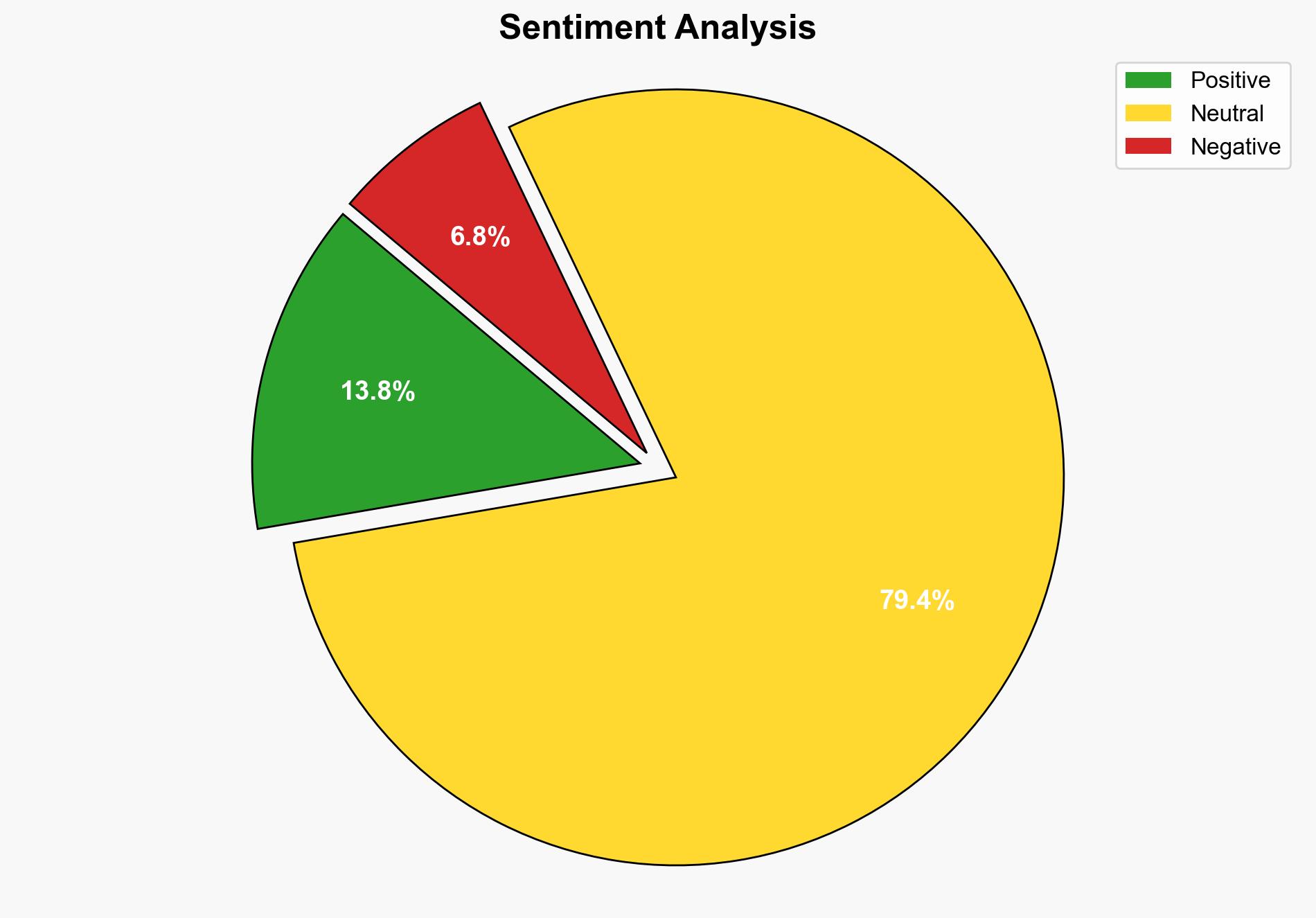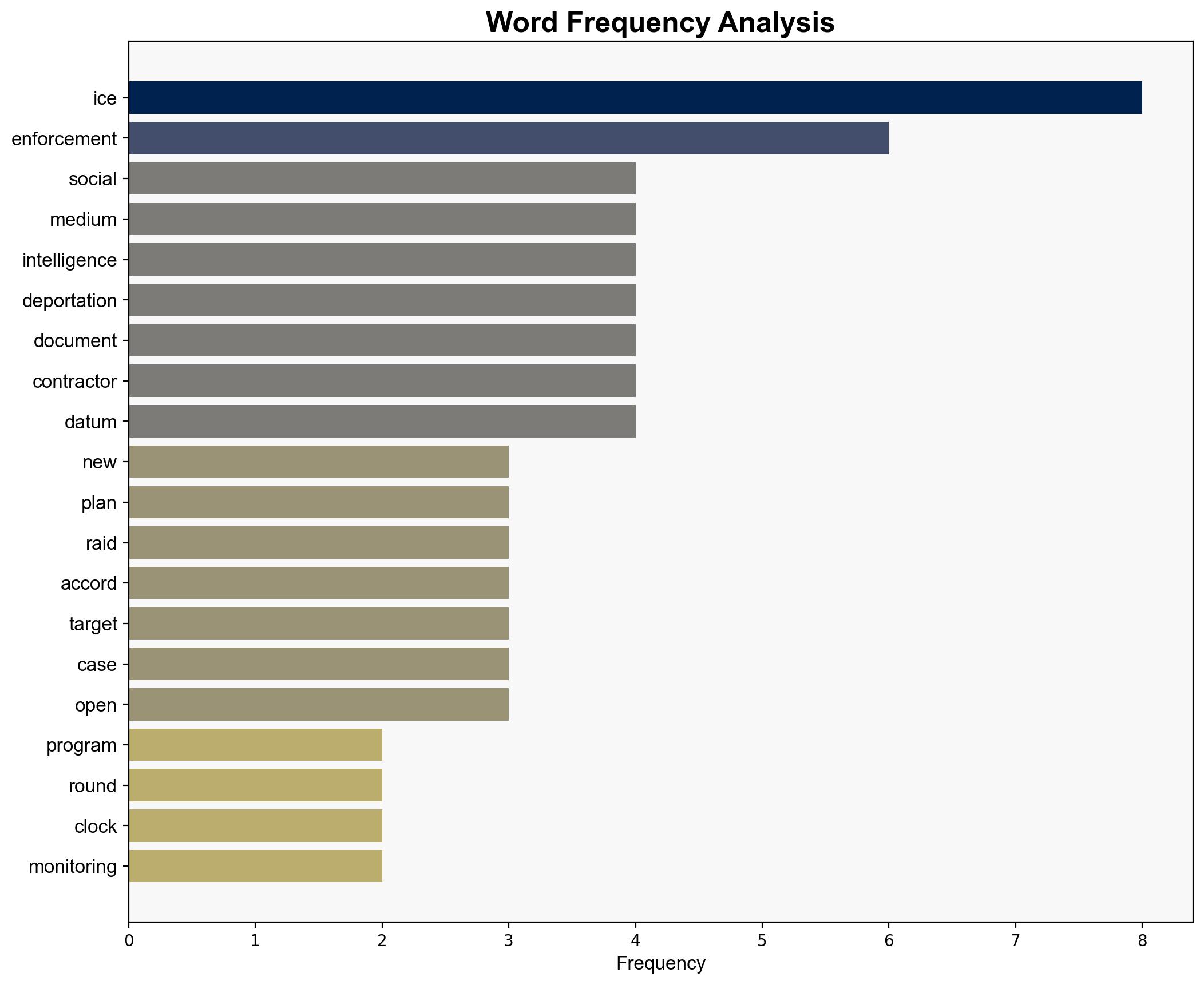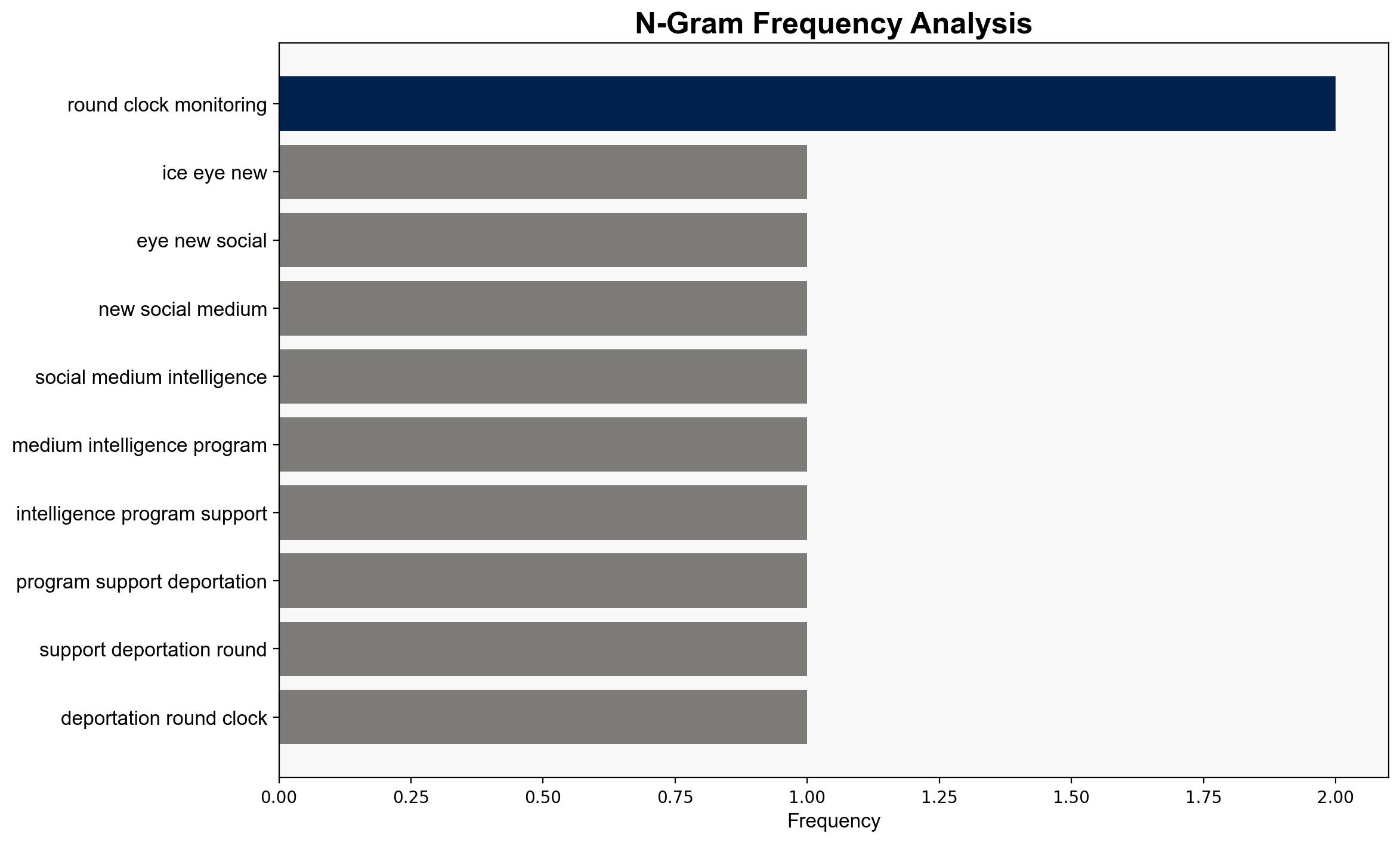ICE Eyes New Social Media Intelligence Program to Support Deportations With Round-the-Clock Monitoring Report – International Business Times
Published on: 2025-10-07
Intelligence Report: ICE Eyes New Social Media Intelligence Program to Support Deportations With Round-the-Clock Monitoring Report – International Business Times
1. BLUF (Bottom Line Up Front)
The most supported hypothesis is that ICE’s new social media intelligence program is primarily aimed at enhancing the efficiency and effectiveness of deportation operations through advanced surveillance technologies. Confidence level: Moderate. Recommended action: Monitor the implementation and impact of this program on civil liberties and immigration enforcement practices.
2. Competing Hypotheses
Hypothesis 1: ICE’s new program is designed to significantly enhance deportation efficiency by leveraging social media intelligence to identify and track individuals more effectively.
Hypothesis 2: The program is primarily a strategic move to expand ICE’s surveillance capabilities under the guise of immigration enforcement, potentially leading to broader privacy infringements.
3. Key Assumptions and Red Flags
Assumptions:
– The integration of AI and social media data will improve ICE’s ability to identify targets.
– Contractors will adhere to legal and ethical standards in data collection and analysis.
Red Flags:
– Potential overreach in surveillance could lead to privacy violations.
– Lack of transparency in how data is collected, stored, and used.
– The possibility of using fake profiles raises ethical concerns.
4. Implications and Strategic Risks
The program could lead to increased deportations and more efficient immigration enforcement. However, it poses significant risks to civil liberties, including privacy violations and potential misuse of data. The integration of AI tools may also lead to errors or biases in target identification, potentially escalating tensions with immigrant communities and civil rights organizations.
5. Recommendations and Outlook
- Conduct a thorough review of the legal frameworks governing data collection and use in this program.
- Engage with civil liberties groups to address potential privacy concerns and ensure transparency.
- Scenario Projections:
- Best Case: The program enhances ICE’s operational efficiency without infringing on civil liberties.
- Worst Case: Widespread privacy violations lead to legal challenges and public backlash.
- Most Likely: The program faces scrutiny and adjustments but proceeds with increased oversight.
6. Key Individuals and Entities
– ICE (Immigration and Customs Enforcement)
– Contractors involved in data analysis and AI integration
– Civil liberties and immigrant rights organizations
7. Thematic Tags
national security threats, cybersecurity, counter-terrorism, regional focus




